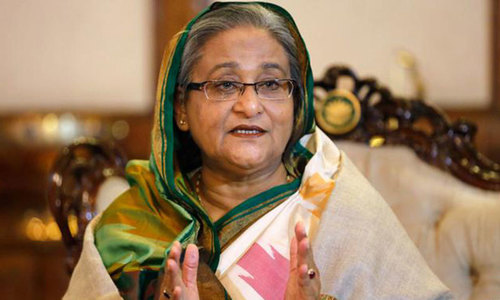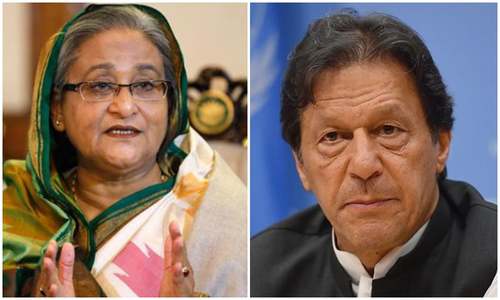From 1971 to 2021

DEC 16, 2020, marks 49 years since the break-up of the original Pakistan. Factors and conditions that crystallised in the 24 years between Independence and the separation of East Pakistan are viewed through multiple lenses in post-1971 Pakistan, though there is virtual unanimity on India’s role in ensuring the break-up.
When civil war erupts within a nation state, there is divergence, post facto, on how the causes of war and its outcome are viewed by different segments within that state. Even when civil war does not result in the break-up of a state eg the US in 1861-1865, over 155 years later, there is lack of unanimity on history. Statues, flags and other content representing the losing side (the southern states) abide in 2020.
So the lack of consensus in Pakistan in 2020 is not an exception. In our case, the trauma was greater. Unlike the US civil war’s aftermath, Pakistan’s original structure was greatly denuded. The original structure was the most awkwardly constructed, vulnerable framework of any nation state ever created. Two wings with approximately equal populations were separated from each other by 1,000 miles of hostile territory. Unlike the US experience, Pakistan’s hostile neighbour played a pro-active role by invading the sovereign territory of East Pakistan on Nov 21, 1971.
Pakistan’s official narrative expresses deep regret at the tragedy. There is also a reluctance to revisit that year and acknowledge harsh truths about the excesses against Bengalis suspected to be secessionists or Indian agents. Cruel excesses were also committed against non-Bengalis, particularly onward of March 1, 1971. It is assumed it is better to forget the unpleasant past, and look to the future because reviving the debate on responsibility and accountability will open up new schisms.
There is an opportunity to revisit attitudes to 1971.
But sections of the academia, media, civil and political society in Pakistan think Pakistan owes an unqualified apology to the people of Bangladesh for the 1971 killings. They believe that expressions of regret by prime minister Z.A. Bhutto and Gen Musharraf during their respective visits to Bangladesh were not enough.
Yet it is pertinent to recall what happened when, less than three years after Bangladesh’s birth, Bhutto visited Dhaka in June 1974. He received a tumultuous welcome. The “frenzied enthusiasm” was all the more remarkable because he was seen by many as a major cause of the 1971 crisis.
J.N. Dixit, Indian high commissioner in Bangladesh later recorded his eyewitness account in Liberation and Beyond: Indo-Bangladesh Relations. He was disturbed by the slogans against India and Shaikh Mujib raised on the streets during the welcome for Bhutto and the vandalisation of the Indian flag on his car.
However, in the past 10 years, the Awami League has invested enormously in promoting the demonisation of the Pakistan Army in particular. Through grossly unfair show-trials and executions of some people accused of collaboration, through diatribes in discourse, two generations of Bangladeshis have been given a biased view of Pakistan.
2021 is an opportunity for Pakistan’s political and military leadership to revisit attitudes to 1971. The truth that the conflict was an attempt to preserve state unity and not a wilful assault on the Bengali people can be reiterated. With military institutions such as NDU in recent years enabling discussion on sensitive issues, an attempt can be made to build consensus between the civil and military spheres on a shared narrative. Simultaneously, efforts should be made on diplomatic and civil society levels to enhance and broaden the dialogue with Bangladesh for a new impetus in ties. A possible exchange of apologies, with Pakistan being the first to offer one, could break the impasse. A reciprocal acknowledgment from Bangladesh could follow, either soon, or somewhat later.
An apology for excesses will not demean the courage with which the outnumbered, under-supplied Pakistani troops defended the country. There were only about 34,000 combat soldiers out of about 45,000 troops deployed. They faced about 250,000 Indians and about 150,000 Mukti Bahinis. Even Indian field marshal Manekshaw recognised “the gallantry of Pakistani troops”. Even if there is no reciprocal apology from Bangladesh for the killings of thousands of non-Bengalis, the onus will shift.
For two of the world’s most populous Muslim states, fellow nations of South Asia, 2021 can herald the start of a new future in bilateral relations. Through enhancement of modest existing exchanges, which include limited military contacts, through a new activism in culture, arts, trade, academia, media, civil society and sports, the sohni dharti of Pakistan and the sonar Bangla of Bangladesh can create a new fusion of soils and souls, a new vision for a fraternal future.
The writer is a former federal minister and senator, and is the author of Pakistan — Unique Origins; Unique Destiny? and other books.
Published in Dawn, December 16th, 2020












































